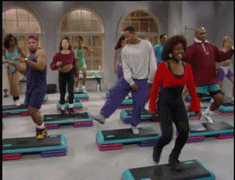MENU
×

 Lifestyle
Lifestyle
3 min read
When it comes to revision, everyone tends to have their own method that works best for them. Some go hell for leather on their textbooks with highlighters, others leave everything to the very last minute and still manage to walk away with a decent result while you’ve been slaving away for weeks.
We’ve got a list of nine of our favourite revision hacks that are guaranteed to work -no caffeine involved!

Often, you’re your own worst enemy when it comes to studying. ‘Just five more minutes on YouTube and then I’ll start studying’ inevitably ends up turning into eight hours of YouTube and a blank Word document lying open on your computer.
To avoid this, you can quite literally block yourself from getting distracted by websites, emails and social media via apps like Cold Turkey. Enter the names of the sites you want to ban yourself from and the length of time you want it to be effective for, and Cold Turkey will cut you off from them completely!
Alternatively, you could give your phone to your family or a friend with strict instructions not to give it back for a certain length of time!

Probably our favourite tip on this list! Eating can be a great way to give yourself a leg up in your studying and increase your brain power. Unfortunately, you’ll probably want to ditch the chicken nuggets, at least for a little while.
If you really want to give your studying a boost, you’ll want to eat healthy and nutritious foodstuffs like fresh fruit, oily fish and green leafy vegetables.
You can check out a handy list of the top brain boosting foods and make sure to stock up the fridge before knuckling down for an intensive study session.
Yup, it’s the old school method and it’s a lot slower than typing stuff out on your laptop, but in actual fact that’s kind of the point.
There's loads of studies that show that taking the time to write your notes out with a good old-fashioned pen and notepad will actually help you to learn more effectively as it forces you to slow down and really think about what you’re writing.

Choosing the right type of tunes to listen to while you’re studying can really enhance your productivity, your focus levels and your motivation.
The best music to listen to while studying is generally agreed to be classical music, in particular Mozart. There’s actually a psychological phenomenon called the 'Mozart Effect' which has been shown to increase mental performance in people who listen to his music for just 10 minutes!
If you’re not a classical music fan, never worry. You can listen to anything you like so long as it’s not counterproductive or distracting; we’d recommend loading up one of the many Chillwave playlists on Spotify and getting stuck right in.
Studying in one area religiously, be it your bedroom or a certain area of the library, can actually be detrimental according to studies, as your brain will learn to associate all the information you’ve learned with that one area.
That means that if you took your exams in your bedroom or in the library you might do well, but when you enter a new environment like the examination room you could suddenly draw a blank as your brain struggles to adapt to its new surroundings.
The answer? Constantly mix up where you study to avoid falling into this mental trap. It could be as simple as moving to another room in the house, or if the weather’s good why not jump in the car and take your books to the beach!

Possibly the most powerful tip on this entire list is one that you mightn’t expect. Teaching someone the same material you’re learning can be massively effective, as it forces you to really know the material inside out and it’s also great practice for repeating the information when it comes to test time!
If possible, agree to partner up with a buddy and take turns attempting to teach each other parts of your syllabus. Getting the other person to ask you questions about what you’re learning will really highlight gaps in your knowledge.
If you don’t have anyone that you can physically teach, a great alternative is to start a blog or vlog to do the same thing. You don’t have to even publish them live on the internet, just the process of doing it is good enough!

Thought exercise was all about keeping your body in shape? It’s also a great workout for your mind and has both long and short-term effects on your cognitive abilities. Exercise is a great stress reducer, which anyone who’s studying for their final exams will find handy in itself.
If you’re not a huge gym-goer, don’t worry. Even small lifestyle changes like walking or spending a few minutes on your bike can have a big effect. To feel the immediate benefits, try doing 20 minutes of moderate cardio straight before you hit the books.

The 'Forgetting Curve' is an important phenomenon among people who are trying to pick up a second language, but it can apply to any and all areas of studying.
It essentially states that your memory of a subject will drop by around half in the immediate days that follow study unless you make an effort to consciously review the material you’ve learned. In other words, if you don’t review what you’ve learned you’re likely to just simply forget it!
To combat this, try doing a short review session for a few minutes after every study interval to really lock in all that newly-learned material and to stop you from having to learn it all over again!

Nope, this isn’t just an excuse to be lazy! It’s called the Pomodoro Technique and it’s used by lawyers, developers, writers and even film directors all over the world to help them stay on top of the heaps of information they have to deal with.
It works like this: for every 25 minutes of study, allow yourself a breather of between five and 10 minutes to let your mind rest and help you absorb all the info you’ve just learned.
Think of it like pouring water into a funnel. If you just tip all the water in, the chances are there’s going be a lot of spillage but by taking your time, and pouring in small amounts, you’ll have no problems. That analogy works, right...?
Was this article helpful?
Thanks for your feedback!